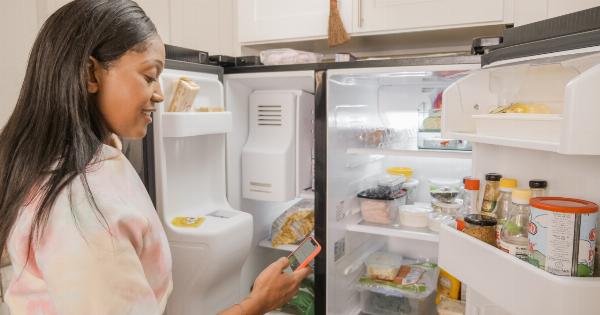When you are buying a fridge, one of the most important factors to consider is the size of its food storage space. You need to make sure that it is big enough to store all the food items you and your family will consume.
In this article, we will help you determine the capacity of your fridge’s food storage space.
What is Fridge Capacity?
Fridge capacity is the amount of internal storage space a fridge has to store food items. It is measured in liters or cubic feet. The capacity of a fridge is determined by the number and size of its compartments and shelves.
A larger capacity fridge can store more food items than a smaller one.
How to Measure Your Fridge Capacity?
The capacity of your fridge can be determined in two ways: by checking the manufacturer’s specifications or by measuring the internal storage space yourself.
If you want to measure the internal storage space yourself, follow these easy steps:.
- Empty your fridge of all food items and shelves.
- Measure the length, width, and height of the internal space using a measuring tape.
- Multiply the length, width, and height to get the total internal cubic volume of the fridge.
You can also use online calculator tools to determine your fridge capacity.
Factors Affecting Fridge Capacity
Several factors affect the capacity of your fridge:.
- Size and dimensions of the fridge: Bigger fridges can store more food items than smaller ones.
- Number of compartments and shelves: More compartments and shelves provide a larger storage space.
- Shape and design of the compartments and shelves: The shape and design of the compartments and shelves affect how much food can be stored in them.
- Door shelf design: Some fridges have door shelves that are deeper than others, providing additional storage space.
Types of Fridge Capacity
There are two types of fridge capacity:.
- Gross capacity: This is the total internal storage space of the fridge, including all compartments and shelves.
- Net capacity: This is the actual usable storage space in the fridge, after taking into account the space occupied by the compressor, evaporator, and other components. Net capacity is typically smaller than gross capacity.
Fridge Capacity Recommendations
The capacity of your fridge depends on the size of your family and your food storage needs. A family of four typically needs a fridge with a capacity of at least 200-300 liters.
If you have a larger family or entertain guests often, you may need a fridge with a capacity of 500 liters or more.
It is important to note that a large fridge may consume more energy than a smaller one, leading to higher electricity bills. So, choose the fridge with the capacity that meets your needs without being too large.
Conclusion
Knowing the capacity of your fridge’s food storage space is important to ensure that you have enough space to store all your food items.
You can determine your fridge capacity by checking the manufacturer’s specifications or measuring the internal storage space yourself. Factors that affect fridge capacity include size, number of compartments and shelves, design of the compartments and shelves, and door shelf design.
Choose a fridge with a capacity that meets your family’s needs without being too large to save energy and money.































